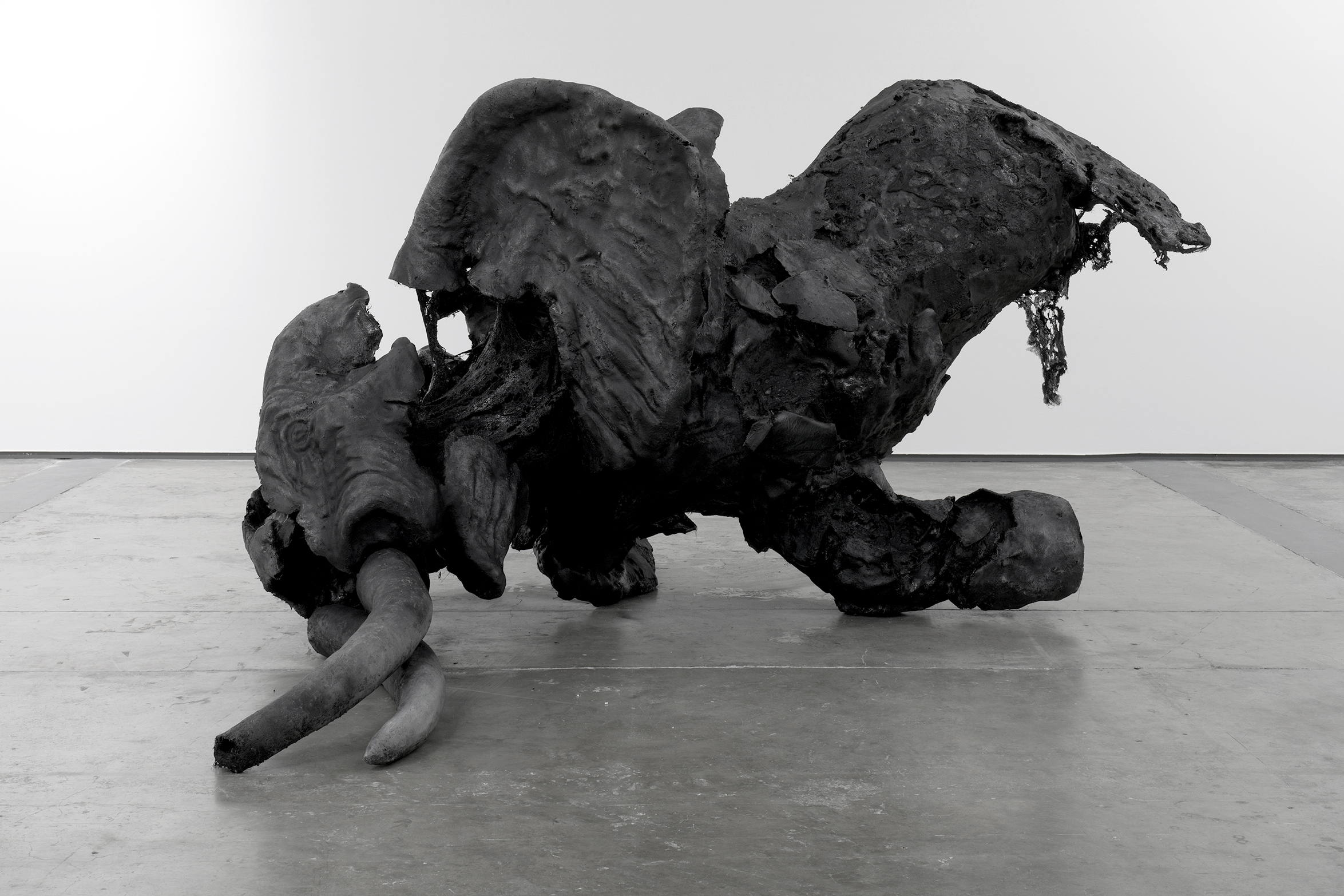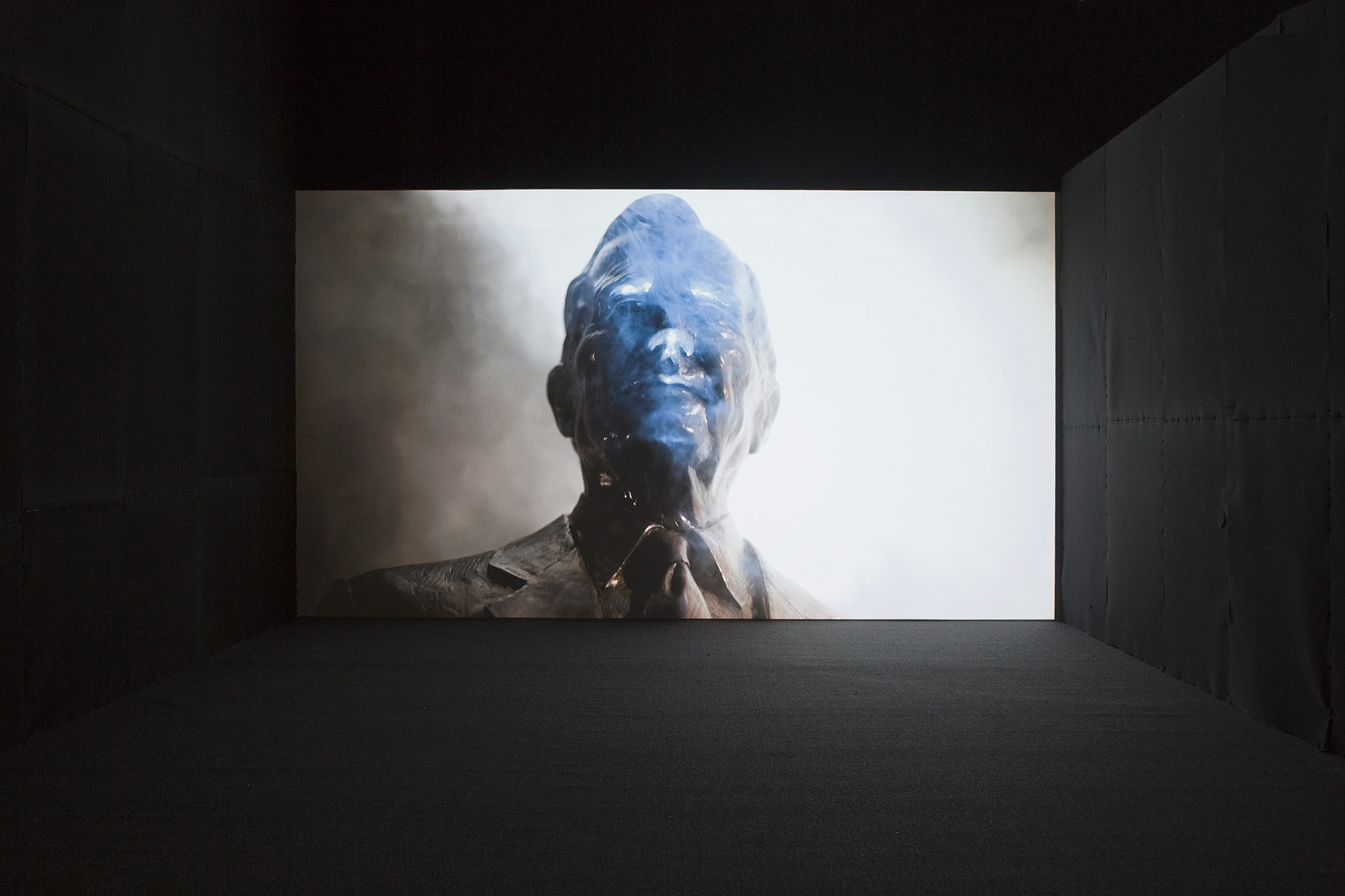GRAVITATIONAL COLLAPSE, 2019
Gravitational collapse is the fundamental mechanism for the structural formation of the universe. It occurs when the internal pressure of an object is insufficient to resist its own gravity.
For this site specific piece created at the Camino Real Shopping Center in Lima, Peru, Okón proposes an analogy between this physical phenomenon, the upcoming renovation of the commercial center and most importantly, the economic structure of neoliberalism.
The Centro Comercial Camino Real marked the beginning of a US style shopping mall culture in Peru. Opened in December 1980 in the exclusive district of San Isidro with shops, restaurants, cinemas and even a skating rink, Camino Real was for about ten years the main shopping center in Lima. In 1992 the shopping mall suffered from a bomb attack and visitor numbers diminished. Camino Real has since been semi-abandoned and has effectively become a symbol of political and economic instability. It is a ghost shopping center that collapses within its own structure to give rise to a new one - in the same way stars are formed, but also black holes.
In this context, Okón presents a work that revolves around consumer culture but also predict its collapse. Gravitational Collapse transforms the facades of the abandoned stores into hyper-realistic showcases of well-known transnational brands. These stand out from the devastated interiors of these same spaces, which were calcined for the occasion. This work points to the growing replacement of public space with private ones. It also refers to the new shopping center to come: a late reaction to the renewal, increasingly accelerated, of an economic cycle that appears as a necessity of the neoliberal model and the narrative that links quality of life to the consumption of the new.
Gravitational Collapse questions the sustainability of this perpetual consumption system and draws attention to the vicious circle to which the current economic system subjugates us: on the one hand, the culture of hyper-consumerism, with its consecration of the new, the acceleration of innovations and the reduction of life cycles; and on the other, the emotional emptiness of consumers who, always dissatisfied, try to fill this void by consuming even more. In addition to this cycle, the piece suggests the fragility of a system that, by generating excessive demand, uses non-renewable resources at an increasingly rapid rate; heading for an inevitable collapse or black hole.


